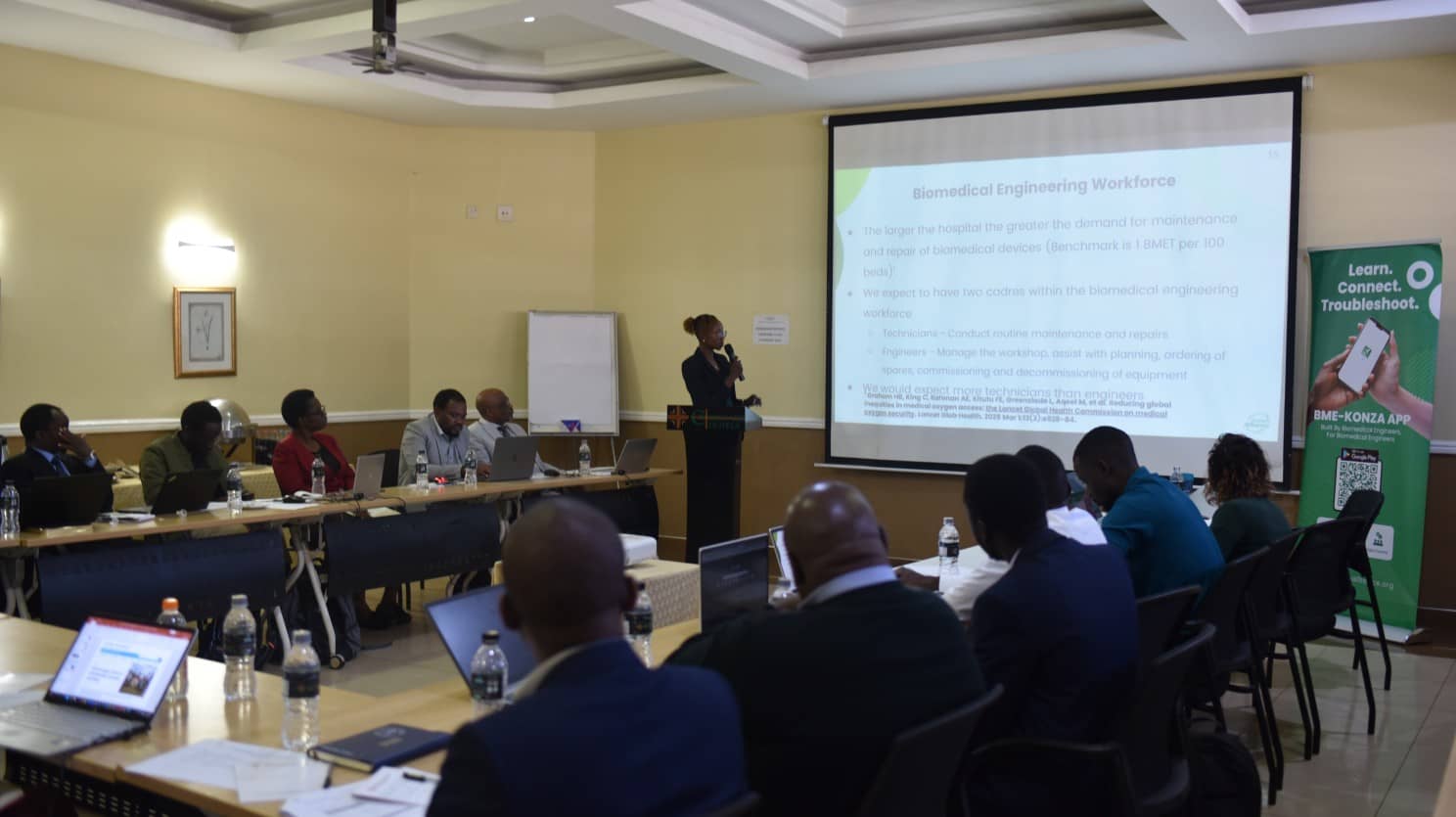LILONGWE, Malawi – 5 June 2025 – Oxygen Alliance, in close collaboration with Ministry Of Health Malawi , convened a national stakeholder meeting on 29 May 2025. The stakeholder meeting aimed to address the systemic challenges within Malawi’s biomedical engineering sector, a field essential for patient survival and effective healthcare services. The forum brought together 31 leaders from 15 key institutions, including academia, regulatory bodies, professional associations, healthcare providers, as well as biomedical engineers, to chart a course for a robust and responsive biomedical engineering workforce and ecosystem.
The urgency of this initiative stems from a 2024 national situational analysis conducted by the Oxygen Alliance with the Ministry of Health, an assessment that identified pervasive issues ranging from a fragmented biomedical engineering workforce, significant quantities of unutilized medical equipment, and inadequate alignment between training institution outputs and the practical needs of Malawi’s healthcare system; deficiencies which directly impact the availability of functional lifesaving equipment, affecting patient outcomes and the capacity of health workers.

Discussions at the May meeting confronted five specific systemic misalignments: the mismatch between biomedical engineering graduate supply and health system demand; an imbalance between technicians and engineers in health facilities; the absence of a structured postgraduate internship pathway for new engineers; a lack of mandatory continuing professional development; and conflicts between current equipment disposal protocols and the hands-on training needs of academic institutions. Participants, including the Head of the Ministry’s Physical Asset Management division, expressed strong support for strengthening the biomedical engineering system, with the division’s chief reaffirming this commitment.
Key outputs and proposed actions emerging from the consultative meeting signify a determined effort to address Malawi’s biomedical engineering challenges with these strategic elements aiming to fortify the nation’s healthcare infrastructure:
- Development of Substantial Policy-Level Recommendations: The meeting produced specific policy proposals to tackle identified systemic issues within the biomedical engineering sector.
- Securing of Cross-Sector Commitments: Participants from diverse institutions pledged support and involvement in implementing the proposed changes.
- Introduction of Evidence-Based Staffing Norms: A proposed action involves creating staffing standards grounded in equipment inventories and complexity to ensure facilities have appropriate BME personnel levels.
- Reformation of Technician Training and Career Paths: The outputs call for changes such as adopting a national staffing benchmark of biomedical engineers to technicians, introducing advanced roles like Chief BMET, and standardizing technician certification.
- Institutionalization of a National Postgraduate Internship Program: There is a proposal to create a structured internship for biomedical engineering graduates to improve practical skills and professional readiness.
- Mandating of Continuing Professional Development (CPD): Recommendations include making CPD compliance a requirement for license renewal and promotions to encourage ongoing skill enhancement in the rapidly evolving field.
- Amendment of Equipment Disposal Laws: A key proposed action is to revise or create special provisions within the PPDA Act, a change that would allow functional, decommissioned medical equipment to be redirected to accredited training institutions for educational purposes.
The meeting represents another significant step in our sustained multi-stakeholder engagement approach, ensuring that these reforms are owned, led, and adapted by national actors, biomedical engineers and other policy driving stakeholders. The path forward requires dedicated resources for the implementation of the report’s recommendations, including the rollout of new staffing benchmarks and necessary legal reviews, a focused effort seeking to align Malawi’s health technologies with the skilled workforce required for their maintenance and effective operation, potentially creating a regional model for excellence.
About the Oxygen Alliance: The Oxygen Alliance, founded in 2021 by Sanrai International and GHII, addresses the critical issue of non-functional medical equipment in Low- and Middle-Income Countries. We advocate for the systemic improvement of biomedical device repair and maintenance. Our mission focuses on health systems strengthening to ensure high-quality healthcare delivery. The Oxygen Alliance operates as a multidisciplinary collaborative platform, bringing together governments, biomedical engineers, NGOs, equipment manufacturers, and academic institutions to build enduring local capacity, champion policy change, and embed proactive equipment management.